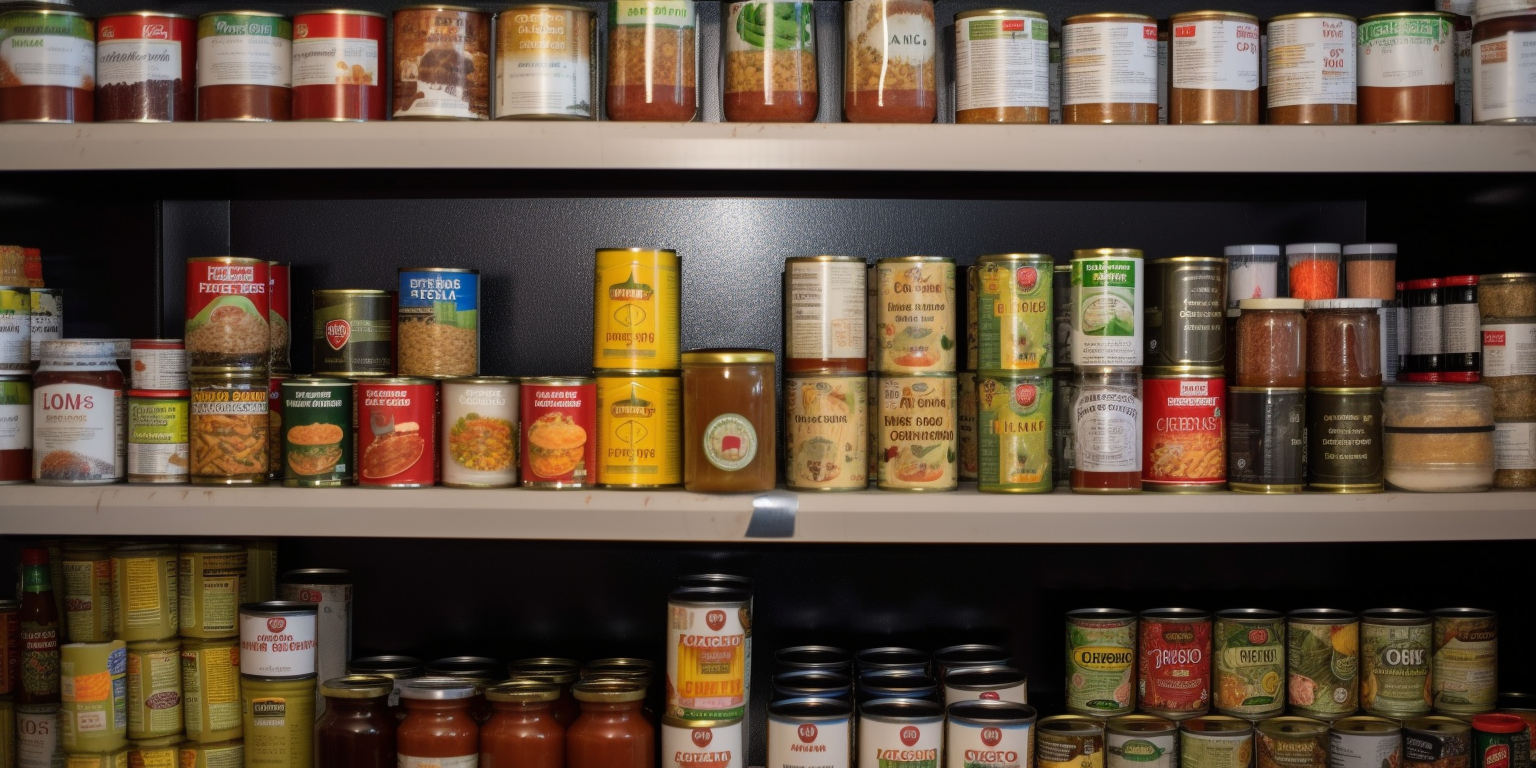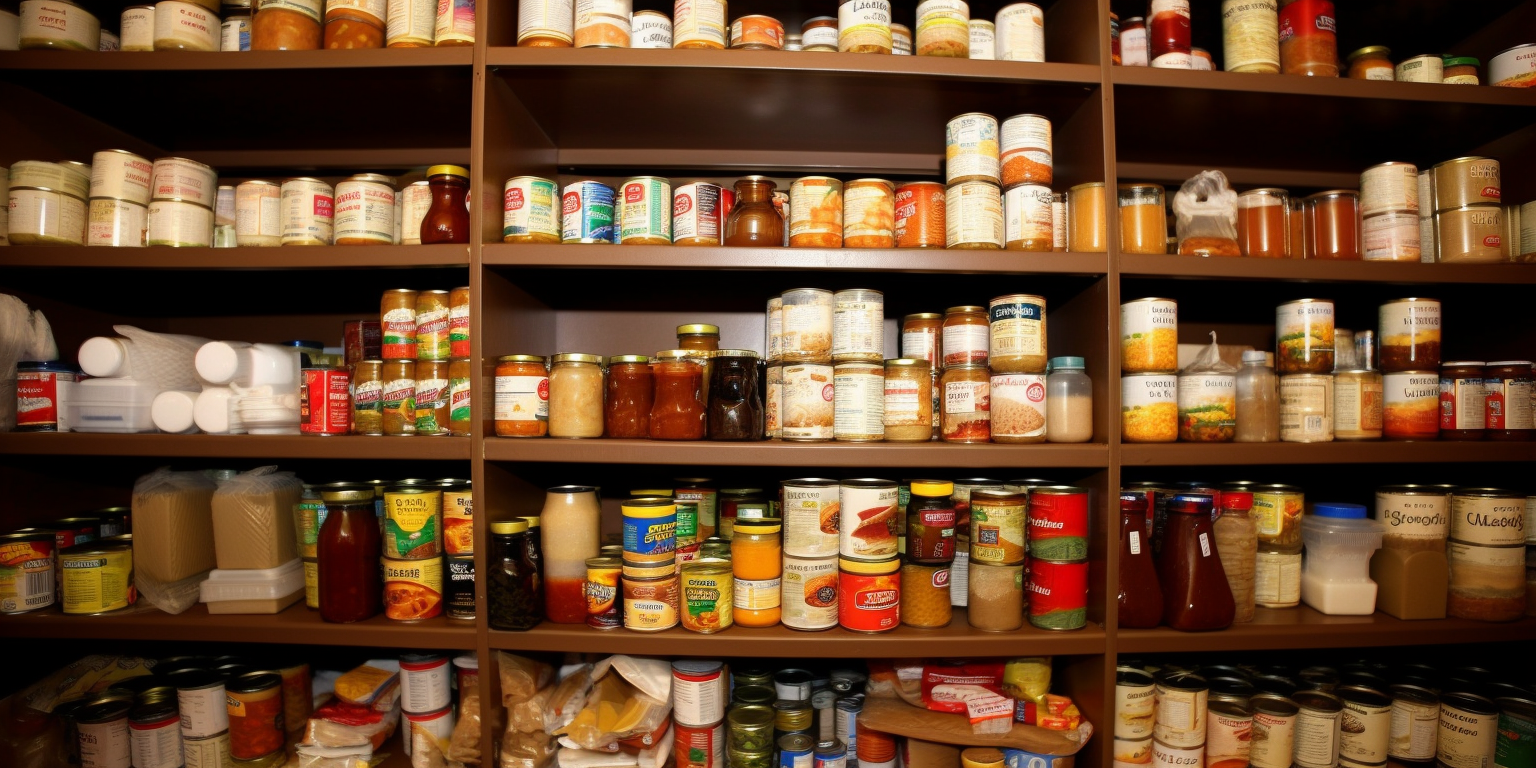
How to Build an Emergency Food Supply for Pets: A UK Guide
How to Build an Emergency Food Supply for Pets: A UK Guide
Emergencies and natural disasters can strike without warning, leaving you and your family in a difficult situation. While many of us have considered our own emergency food supplies, it's important not to forget about our furry companions. In this article, we'll delve into how to build an emergency food supply for your pets, ensuring that they're well-protected in case of unforeseen circumstances.
- Understand your pet's dietary needs
The first step to building an emergency food supply for your pet is to understand their dietary needs. The PDSA Animal Wellbeing (PAW) Report of 2021 found that around 50% of UK households own a pet, with approximately 12 million dogs and 12 million cats, not to mention the many other pets such as rabbits, hamsters and guinea pigs. Each animal has unique nutritional requirements, so it's important to tailor your emergency food supply accordingly.
- Calculate the necessary food supply
Your emergency pet food supply should last for at least two weeks, in line with the UK government's recommendations for human food supplies. To determine how much food your pet needs, consult the feeding guidelines on your pet's regular food packaging or consult with your veterinarian. Multiply the daily portion by 14 to estimate a two-week supply. Many pet owners store well in excess than this as standard - so this might not require any further expenditure. However, this pet food might not be practical to pack in the situation where a quick exit is necessary - so you might want to consider alternative packaging format pet foods, such as flexible pouches.
- Choose the right type of food
When building an emergency pet food supply, it's essential to consider the type of food you're storing. While canned food has a longer shelf life (1-2 years), dry food is easier to store and transport. If your pet is on a special diet or requires prescription food, ensure you have a sufficient stock. Rotate the emergency supply every six months to maintain freshness and quality.
- Don't forget about water
According to the National Research Council, the average cat requires approximately 60ml of water per kg of body weight per day, while dogs need 50-70ml per kg. Ensure you have enough water for your pet's needs in addition to your own emergency supply. You should have at least two litres of water per day for each dog, and one litre per day for each cat.
- Consider supplements and medications
In the 2021 PAW Report, 27% of dogs and 12% of cats in the UK were found to have a long-term health condition that required medication. Make sure you have a two-week supply of any necessary medications, as well as essential supplements such as probiotics, especially if your pet is prone to digestive issues.
- Store your pet's emergency food supply properly
Proper storage is vital to ensure the quality and safety of your pet's emergency food supply. Store dry food in a cool, dry place, away from direct sunlight and moisture, preferably in an airtight container. Canned food should be kept in a cool, dry area away from freezing temperatures and heat sources. Remember to check expiration dates regularly.
- Prepare additional essentials
In addition to food and water, prepare an emergency kit for your pet that includes items such as a leash, collar or harness, a pet carrier, toys, blankets, litter, and a manual can opener for canned food. You should also have a copy of your pet's vaccination records and microchip information in a waterproof container.
Conclusion
By following these guidelines, you can ensure that your pet is well-prepared for any emergency situation. Remember that your pet's wellbeing is almost as important as your own, and taking the time to build a suitable emergency food supply is crucial for their safety and comfort. Keep your pet's specific needs in mind and regularly review and update your supplies to guarantee their effectiveness in a time of crisis.
Suggested Articles
How to Store Emergency Food in Small Spaces: Tips for those with Smaller Homes
For UK residents living in smaller homes or apartments, storing emergency food supplies can be a challenge due to spa...
How to Organize Your Emergency Food Storage: Tips for Space-Saving and Efficiency
Emergency food storage is an essential aspect of preparedness for any household, especially when faced with natural d...
How to Build an Emergency Food Supply for Large Groups or Communities
Picture this: a sudden emergency, natural disaster, or crisis unfolds, and you find yourself responsible for feeding ...




